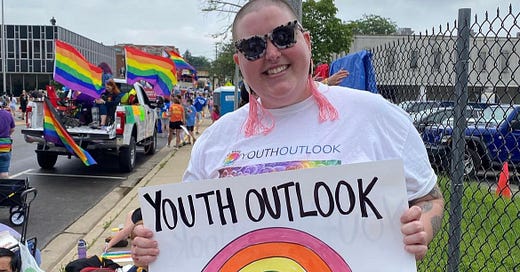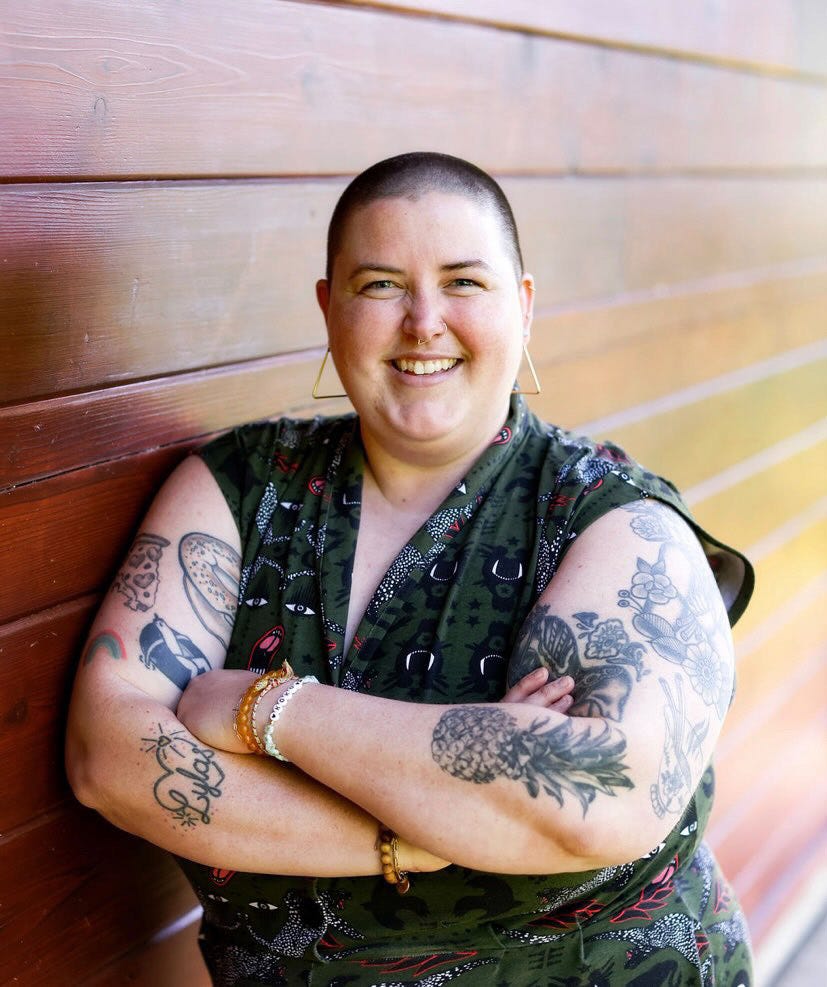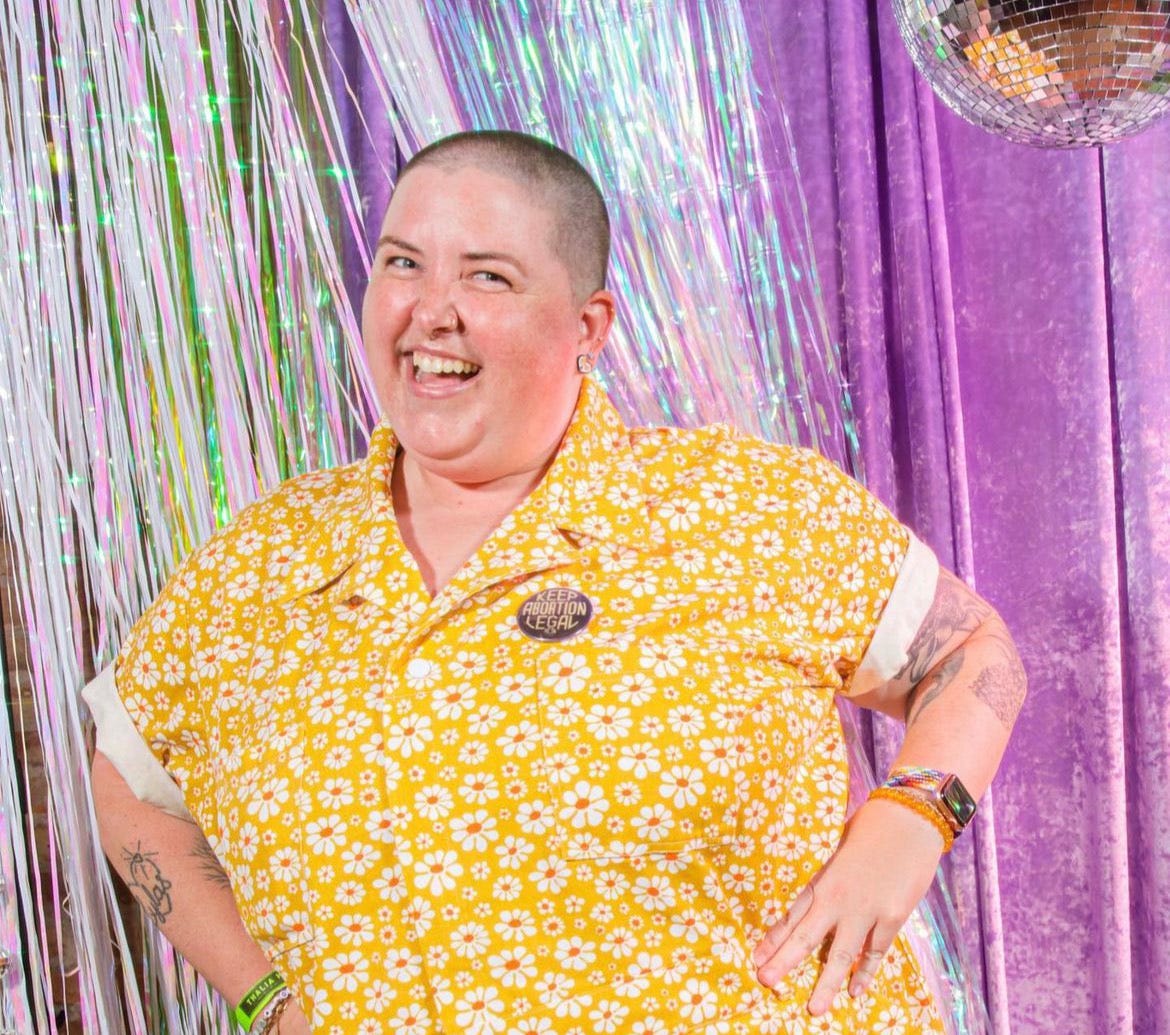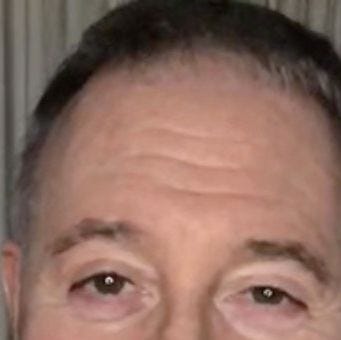the case for queer joy when the tragedies never stop.
I spoke with advocate Carolyn Wahlskog about what queer youth in the western suburbs need right now.
Queering the Burbs is a regularly-published distillation of pop culture, politics and queerness written by Joe Erbentraut. If you like what you see, please consider subscribing (it’s free!), liking or sharing this piece.
It’s been a difficult time of mourning for LGBTQ+ folks. On July 29, 28-year-old professional dancer and Black gay man O’Shae Sibley was stabbed to death by a teenager while dancing with his friends to a Beyoncé song outside a Brooklyn gas station. His 17-year-old killer, who turned himself in this weekend, was making homophobic and racist remarks toward Sibley and his friends prior to the attack that abruptly ended his life.
Sibley’s murder should not be stripped away from vitally important context: Dancing is not a crime. Black joy is not a crime. Queer joy is not a crime. It is our right as queer folks to have the freedom to express ourselves authentically and to find joy and power in our lives. We cannot let anyone take that right away. We have to try our best to honor the legacy of Sibley and so many queer people who have been killed in acts of hate by finding our own joy through survival.
At the same time we mourn Sibley, we also mourn our planet, the dance floor of all dance floors. The month of July was the hottest month that Earth has likely ever experienced. Extreme weather—like deadly heat waves and massive wildfires—is only becoming more extreme and more common, and our oceans are heating up at an alarming and unprecedented pace.
That’s all to say, it’d be pretty easy to feel despondent right now, and yet there is still so much urgent, actionable work to be done in the communities where we live, and so many truly incredible folks doing that work up against this backdrop of doom.
One of those people who I recently had the honor to speak with is Carolyn Wahlskog (she/they). To say Wahlskog is a prolific advocate for LGBTQ+ youth in the western suburbs is truly not doing their incredible work justice. As director of operations and programming at Youth Outlook, they support the organization’s many drop-in centers, recruit and train volunteers, and provide community education and professional development for any institutions (such as schools, mental healthcare providers, or foster care agencies) or businesses that work with young people. They’ve been active with Youth Outlook, the state’s first and longest-running social service agency entirely focused on LGBTQ+ youth, since 2011.
Wahlskog also coordinates the DuPage Community Network, which brings together professionals serving LGBTQ+ youth to network and share resources. They formed the Illinois LGBTQ Roundtable which brings together state care providers and LGBTQ+ youth advocates. Finally, they are also a part-time staffer with the Transformative Justice Law Project of Illinois, coordinating their virtual name change clinics supporting individuals seeking name change support throughout the state, and they are also an adjunct professor in the University of Illinois-Chicago’s social work program as well.
That is all to say that Wahlskog keeps pretty dang busy advocating on the front lines for LGBTQ+ youth in the western suburbs and beyond. And while the statistics are alarming—LGBTQ+ youth remain at disproportionate risk of depression, anxiety, suicidal ideation, and experiencing homelessness—and the (overwhelming and growing) demand for services is a constant challenge for providers to attempt to meet, she remains optimistically committed to progress and to the importance of spreading queer joy wherever she turns. Her middle name, she reminded me, is Joy, after all.
I recently spoke with Wahlskog about the current state of affairs for queer youth in the western ‘burbs. If you are interested in supporting Youth Outlook’s work, you can make a donation or volunteer, as the organization’s twice-annual volunteer training is about to open up again next month. Our conversation has been edited for length and clarity.
What are you seeing right now, from all the vantage points of your work, in terms of what queer youth out here are dealing with and what they need? The macro conversation is certainly alarming.
When we look at the national conversation of all this anti-trans legislation, what I often like to remind people living in the western suburbs is that our young people are not immune from this national conversation that’s trying to legislate their lives away. I think the thing that we want to be tuned into is helping young people and not-so-young people understand what their rights are.
When you look at the maps of [LGBTQ+] rights being taken away, it’s easy to think that if we look at Illinois all our rights are protected. We might not be experiencing some of the statewide stuff that’s happening elsewhere. But some of the national organizing around book banning and trying to get schools to not use [LGBTQ+ young people’s correct] names and pronouns and challenging curriculum is still happening here on a local level.
Being situated where we are, a lot of families that have the means are relocating to Illinois or at least calling Youth Outlook to ask, you know, what school districts have you worked with? I’ve met youth in our drop-in centers who have moved from states like Florida and Iowa. I think our area’s going to become this area for people to relocate to, and the one thing I’m concerned about is that we’re already pretty tapped out with our systems. We don’t have affordable housing, our clinics that provide gender-affirming care already have very long waitlists. So I’ve been really thinking about how we can expand capacity for providers here to be able to serve more people because the waitlist at Lurie Children’s is like a year long. If all these other states are having to come get their care here, that’s going to impact us in the western suburbs.
The other trends we’re seeing in general is just that kids are coming out younger and younger. When I look at some of the Facebook groups of parents, of people who don’t spend a lot of time with this community, they think this is just like everyone’s becoming trans. They’re not recognizing that there’s always been queer people who have just not been able to share who they are. So it’s debunking a lot of myths for people in our area. We’ve got a good mix of people who are really trying to do their best to support their kids and others who just don’t always have the information.
That’s really interesting and it’s not something I’ve really thought about. It kind of parallels what we’re seeing with abortion and healthcare access right now, with providers in Illinois struggling to meet the out-of-state demand.
Shifting gears for a moment, I knew you grew up in this area. What was it like for you growing up here and first encountering or coming to terms with your own queerness? How do you think it’s different here today compared to what you saw before?
I grew up in Naperville and went to Naperville Central. I did not have any out gay adults in my life or in my parental circle. I also grew up in the Evangelical Covenant Church, so I didn’t hear negative things about gay people at the pulpit, but I also didn’t hear about them at all. That didn’t exist and wasn’t an option.
I didn’t actually even come out until after college. I was already working at Youth Outlook, so it really wasn’t a surprise to people when I came out because I was already talking about LGBTQ youth all the time, and I think people were like, OK, yeah, we get it. But there was a little bit of grief in that. I’m talking to 13-year-olds who [already] know who they are and I was still figuring that out at 24 and 25. In some ways, it felt like I was coming out so late, but now I look at 25 as still young. But there is a bit of grief wondering what college could have been like or, you know, what did I miss? It’s cool to see young people being so authentic, but at the same time I talked about this with my sister, like, I don’t know how my family would’ve handled it had I come out when I was 18, you know? That’s a six-year time period where the acceptance just wasn’t there in our community. Would I have been supported to finish college or those types of things?
Our young people coming out now who are rejected by family, friends or community are facing that with a 13-year-old brain versus a 20- or 25-year old brain. So I’m always cautious to say it’s so much better for them. I think it’s going to be a different struggle for these young people coming out younger than some of us who came out a little bit later.
I think a lot of volunteers that come to Youth Outlook are like, “I wish this existed [for me].” A lot of people come to volunteer to give back and hopefully create a space they wish they would have had. I had a pretty positive coming out where no one was really that surprised. I was the one that was surprised because I, you know, love kids and want to have a family and [to me] there was no other way to do that besides being, you know, straight.
I think I’ve definitely been guilty of this myth that it’s easier for kids to come out today, because you’re right, it presents extra challenges versus when you’re, you know, not living under your parents’ roof anymore, and maybe you already have your own employment and all that sorted out. Maybe we had it a bit easier than we sometimes think.
I think that’s what I appreciated so much about being able to do the work and continue to work in the community that I grew up in. I think there’s a lot of queer people that move to urban areas and then look back and look down upon the suburbs. But there’s actually, in some ways, more youth services available in the western suburbs than there are in the city for young people who are queer. I think people think, like, how terrible it must be [out here], but we have a lot of stuff going on. You just have to know where to find it.
It was a really special day when I got to train teachers at my old high school around some of the needs of LGBTQ youth. I’ve enjoyed being able to try and see if other kids won’t have that same experience and to figure out what the new challenges are for this new generation.
There’s so much work that you’re doing within the LGBTQ youth advocacy space, and you’ve been at this for some time. I know that burnout is a huge issue in social work and advocacy. Are there ever times where you just, you know, wish you had a 9-to-5 office job? What keeps you going when you’re exhausted and going to your seventieth Pride Month event?
I don’t think I could ever have a 9-to-5. I’d be like, well, what would I do afterward? I’m fueled by community and I’m an extrovert. I get my energy from being around people. So I think what keeps me going is that I’ve been really lucky to have mentors to help me along the way. This work is always interesting and sometimes it’s really frustrating because it can feel like “We already solved that” and now we’re, like, two steps back. But there have been a lot of young people I’ve encountered over my time, and I wear one of their names on my wrist on a bracelet. I think about her and her story every day and I like to keep that in the forefront of my mind. That’s what we’re fighting for, so that story doesn’t happen again the same way. I’m fueled by just wanting to see kids survive. When you’re working with youth in care or youth experiencing homelessness, you can’t feel sorry for yourself for too long.
The systems change takes a long time. Sometimes I’ll look at our agendas of what we’re trying to push for at DCFS, for example. They look the same as they were five years ago, but then we’ll get little victories, like the requirement last year that all foster parents have to get LGBTQ training and it’s not just optional anymore. I got a text from a friend of a friend who was becoming a foster parent and she saw my part of the training and it’s like, oh, that’s working. And I get texts from people who changed their name and maybe their family got them an “It’s a Boy” cake. Those types of things keep me going, along with having a really cute group of queer friends you can run into randomly and finding those times to recharge like floating down the river, having potlucks, building relationships with colleagues at different organizations, and all those types of things, so you’re not just working in your own silo.
What change do you really hope to see happen in the western suburbs within the next five to 10 years, so you don’t have to see it on a meeting agenda again? What’s at the top of your list that you think will mean really meaningful progress for queer folks in the suburbs?
I want to center around queer joy. When people talk about queer communities, don’t just talk about our pain, but also talk about our brilliance and center on joy. It can be easy to talk about the statistics and all that kind of stuff, but we’re not a sad community. One of the moms I worked with once was like, you know, her kid came out as trans and she was like, I didn’t choose this for my family, but now I wouldn’t trade the community that I got exposed to for anything.
And I would hope to see queer people becoming more conscious that we’re not just doing a single issue thing. We have to work together on environmental justice and fair housing and reproductive rights because all of our work is interconnected. Think about who can be the most vulnerable in our communities. We can’t leave behind our youth experiencing homelessness. I’m always really concerned with access to quality mental healthcare for people with Medicaid. We can’t forget about creating systems that actually serve people. They’re not always sexy visions, but I just want everyone to have access to good quality affirming care, not just for rich queer people. As we’re increasing acceptance, lift all of us up, and do it while having fun together and having people feel held and loved by community. That’s my vision.
For more words from queer folks out here doing the work in the western ‘burbs, read my previous interviews with Batavia artist Annie Hex, Aurora organizer Javi, the organizers of Geneva Pride, Batavia alderman Dan Chanzit, Paramount Theatre artistic director Jim Corti, Aurora trans activist Penelope Torres, North Aurora musician Katie Bogle, Hoof & Horn co-owners Jarrod Johnson and Adrian Xavier Frost, and Batavia activist Scott Naylor. As always, please comment, share and subscribe if you like what you read.
It’s pop culture recommendation time! For this edition of the newsletter, I wanted to highlight a few social media phenomena that have been lifting my spirits lately.
First, I must address a late contender for song of the summer, comedian Kyle Gordon’s character DJ Crazy Times’ brilliantly stupid Eurodance parody song “Planet of the Bass.” The song isn’t yet on Spotify, though clips have already gone viral on TikTok. If you love nostalgic silly ‘90s Euro club hits like Haddaway’s “What Is Love” or anything by the Vengaboys, you need this song in your life.
Speaking of songs of the summer, shoutout to Greta Gerwig’s Barbie for not only being an incredibly thrilling and emotionally resonant journey that somehow is a movie for everyone while also delivering a very clear, very feminist worldview, but also for featuring the Indigo Girls’ anthemic “Closer to Fine” three times. That said, perhaps an even more inspired needle drop from that movie is, you guessed it, Matchbox 20’s “Push,” which Rob Thomas dedicated to Ryan Gosling himself during a recent live performance.
I have to admit I’m totally heartbroken by the loss of Paul Reubens, better known as his iconic character Pee-Wee Herman. But I’m also so heartened by the many beautiful tributes to Reuben that have been shared to social media, particularly by his close friend Cassandra Peterson (aka Elvira). Reubens was apparently in the habit of sharing video messages with his closest friends on their birthdays each year, and Peterson shared Reubens’ final message to her on Instagram. The video shows, very clearly, how big of a heart Reubens had, how wildly funny he was, and how deep their bond went. It is so genuinely moving.
Finally, I have to give a shoutout to a very personally significant crossover event involving the brilliant meme account @yolandafister and the wildly popular and perfectly petty I’ve Had It podcast. To make a long story short, “Yolanda” posted a satirical tweet the other day using a photo of the I’ve Had It hosts riding in the back seat of an Uber and wrote in the caption that “Yolanda” was a single mom driving for Uber whom the hosts had tipped $5,000. Some people did not understand the tweet was a joke, the I’ve Had It stars caught wind of the mix-up, and everyone loves each other. This clip will spell it all out in more detail, and hopefully this isn’t just funny to me? At any rate, if you are also in need of some levity, you should follow Yolanda and I’ve Had It if you aren’t ready.







